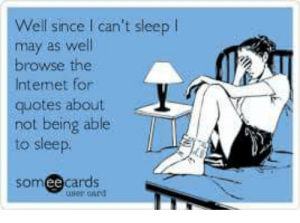How to get a good night’s sleep
Many successful people boast about functioning on a few hours’ sleep. However, with some of the biggest advocates of this routine succumbing to Alzheimer’s disease (Margaret Thatcher, former UK prime minister Harold Wilson and US president Ronald Reagan to name a few) it’s possible that this sort of routine may be harmful.
A good night’s sleep has many restorative functions, one of which is the vital process of removing neurotoxic substances. So, with all this in mind, how can we increase the chances of sleeping better?
Make your bedroom a sleep sanctuary
Your bedroom should be as relaxing as possible, although this doesn’t mean spending money. The easiest and cheapest place to start is by removing anything that could prevent sleep such as TVs, laptops, phones or tablets. These items may distract you from sleep and cause you to feel sleep deprived. Washing your sheets and tidying your room will also help to promote sleep by creating a relaxing environment.
However, if you do choose to invest in your bedroom an obvious place to start is comfortable bedding, such as a new mattress, pillows and sheets. Having houseplants in your bedroom may also help you to sleep, as they can help to clean the air and reduce stress.
Avoid caffeine and alcohol before bed
Drinking coffee, energy drinks or even some fizzy drinks throughout the day can be tempting to help boost your energy levels and concentration when studying. However, caffeine can take up to 8 hours to fully wear off. So, if you’re a regular at Costa, consider limiting your caffeine intake in the afternoon so that it doesn’t keep you up at night.
Alcohol may help you feel drowsy after you’ve had one or two drinks. However, this doesn’t mean it will help you get a good night’s sleep. Drinking alcohol before sleeping can prevent your body from getting into a deep sleep and you may wake up early once its effects have worn off.
We realise this tip will be challenging to follow as you can’t always avoid staying up late drinking coffee if you’ve got a deadline. However, sticking to it when possible may help to sleep.

Avoid eating and drinking close to bedtime
Eating and drinking too close to bedtime can prevent you from sleeping. Having a large meal may cause indigestion and drinking large quantities of fluids can cause you to need to use the bathroom during the night.
So, as a general rule of thumb, try and keep snacks on the lighter side, and only drink small amounts of fluid before trying to sleep.

If you can’t sleep, get out of bed
This may sound silly, but bear with us. If you’re struggling to sleep, a possible way of helping you to drift off is to get out of bed and do something relaxing (nothing involving screens) until you start to feel sleepy. Lying in bed, unable to sleep, can cause you to feel anxious which in turn can make it harder to fall asleep.
Sleep is important for the body to recover properly, and there are some real benefits to getting a good night’s sleep. Being well rested can help to boost your mood, productivity and health in general.
If you’re interested in studying the factors that contribute to poor health and learning more about promoting health and wellbeing, take a look at our Public Health & Community Studies degree taught at CU Coventry, CU London and CU Scarborough.

